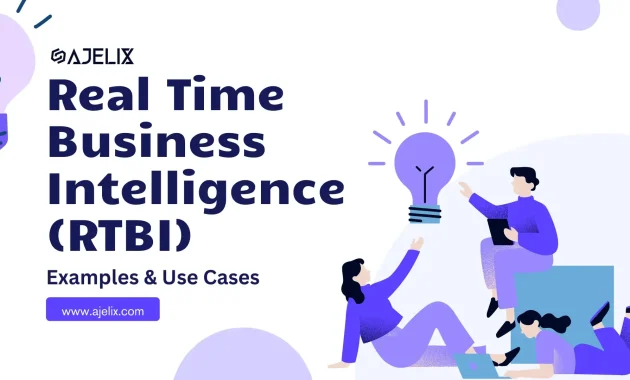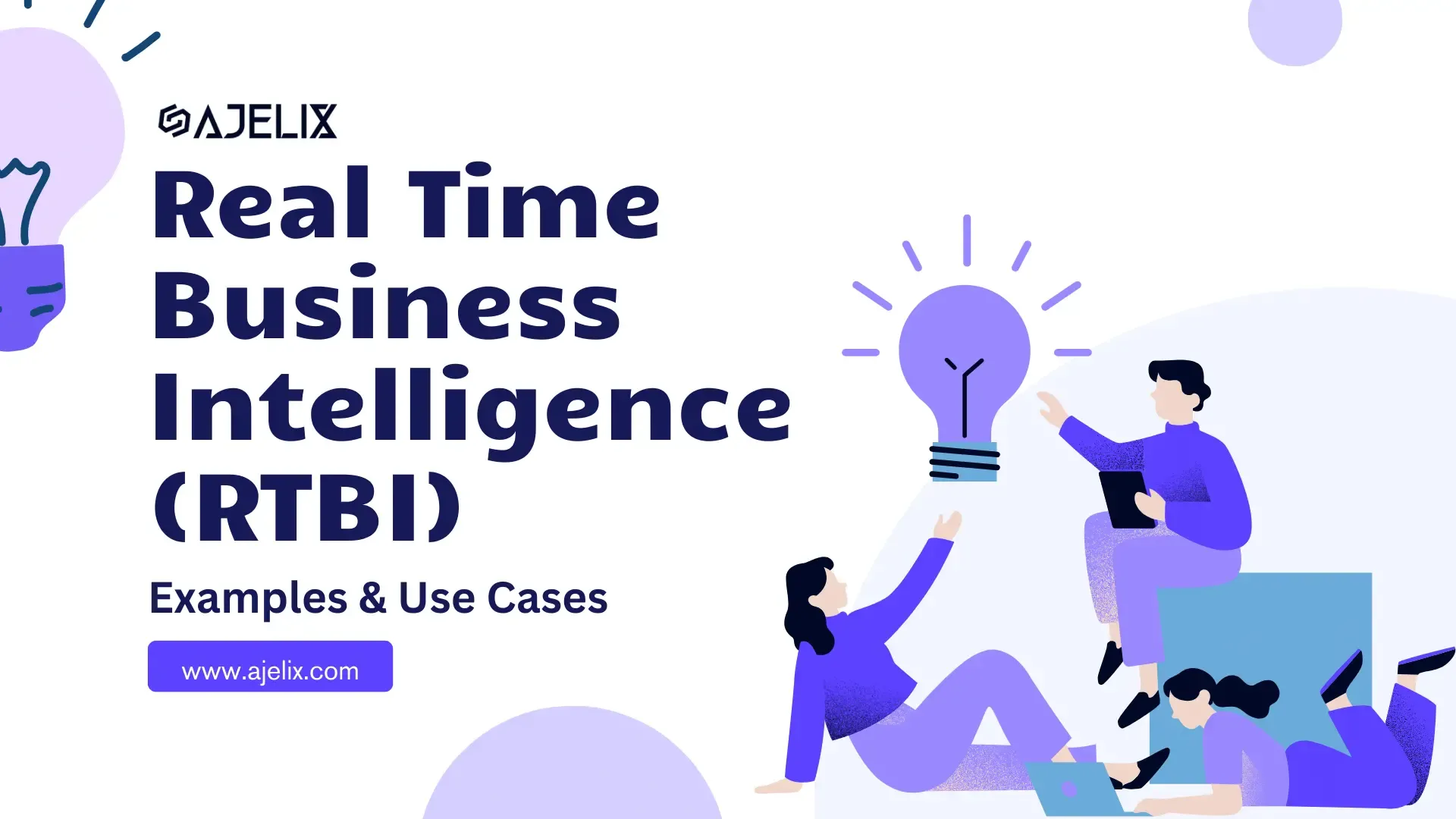
Real Results with Business Intelligence Software for Smarter Planning: A Deep Dive
In today’s data-driven world, businesses are drowning in information. The challenge isn’t just collecting data, but understanding it. Extracting actionable insights from this deluge is crucial for making informed decisions and staying ahead of the competition. This is where Business Intelligence (BI) software steps in. This article explores how businesses are achieving real results with Business Intelligence software for smarter planning. We’ll delve into the core functionalities, benefits, and real-world applications that are transforming how organizations operate.
Understanding the Core of Business Intelligence Software
At its heart, Business Intelligence software is designed to analyze raw data. It transforms this data into meaningful, digestible information. This process allows businesses to identify trends, patterns, and anomalies. These insights drive better decision-making processes. This ultimately leads to improved business outcomes.
The core components of BI software typically include:
- Data Integration: The ability to connect to and pull data from various sources. This includes databases, spreadsheets, cloud services, and more.
- Data Warehousing: A centralized repository for storing and managing data. This enables efficient analysis.
- Data Analysis: Tools for querying, exploring, and analyzing data. This uncovers hidden insights.
- Reporting and Visualization: Capabilities to create reports, dashboards, and visualizations. This makes data easy to understand.
- Data Mining: Techniques for discovering patterns and relationships within large datasets. This provides a deeper understanding.
These components work together to provide a comprehensive view of business performance. They enable users to make data-driven decisions.
The Tangible Benefits of Using Business Intelligence Software
The implementation of Business Intelligence software offers a multitude of benefits. These benefits extend across various departments and functions. The key advantages include:
- Improved Decision-Making: BI provides real-time insights. This enables faster and more informed decisions. This leads to better business outcomes.
- Enhanced Efficiency: Automating data analysis and reporting saves time. This frees up resources for more strategic tasks.
- Cost Reduction: Identifying inefficiencies and optimizing processes leads to cost savings. This improves profitability.
- Increased Revenue: By understanding customer behavior and market trends, businesses can identify new revenue opportunities. This drives growth.
- Competitive Advantage: Data-driven insights help businesses stay ahead of the competition. This leads to market leadership.
- Better Customer Understanding: BI tools help businesses understand customer needs. This allows for better customer service.
These benefits translate into tangible improvements in business performance. They help organizations achieve their goals.
Real-World Examples: How Businesses Achieve Smarter Planning
The power of Business Intelligence software is most evident in its real-world applications. Here are several examples of how businesses are using BI to achieve real results and smarter planning:
Retail Industry
Retailers use BI to analyze sales data, customer behavior, and inventory levels. This helps them optimize product placement. It also helps them personalize marketing campaigns. Furthermore, it improves inventory management. This results in increased sales and reduced waste.
Healthcare Industry
Healthcare providers use BI to track patient outcomes. They also use it to improve operational efficiency. They also use it to identify areas for improvement in patient care. This leads to better patient outcomes and reduced costs.
Manufacturing Industry
Manufacturers utilize BI to monitor production processes. They also use it to identify and resolve bottlenecks. They also use it to optimize supply chain management. This increases efficiency and reduces downtime.
Financial Services
Financial institutions use BI to analyze customer data. They also use it to assess risk. They also use it to detect fraud. This improves customer service and increases profitability.
These examples demonstrate the versatility and impact of Business Intelligence software. It is a powerful tool for any business.
Choosing the Right Business Intelligence Software
Selecting the right Business Intelligence software is crucial for success. The best choice depends on the specific needs of the business. Consider the following factors:
- Data Sources: Ensure the software can connect to all relevant data sources. This ensures comprehensive analysis.
- Scalability: Choose software that can handle future growth. This is important for long-term success.
- Ease of Use: The software should be user-friendly. This allows users to easily create reports and dashboards.
- Features: The software should offer the features needed for the business. This includes reporting, visualization, and data mining.
- Cost: The cost of the software should be within the business budget. This ensures a good return on investment.
- Support: Ensure the vendor provides good customer support. This will help with any issues.
Conducting thorough research and comparing different solutions is vital. This ensures the best fit for the organization.
Implementing Business Intelligence Software: Best Practices
Successfully implementing Business Intelligence software requires careful planning and execution. Follow these best practices:
- Define Objectives: Clearly define the business goals. This will guide the implementation.
- Data Preparation: Clean and prepare data. This will ensure data accuracy.
- User Training: Provide adequate training. This will empower users.
- Iterative Approach: Start with a pilot project. This allows for adjustments.
- Continuous Monitoring: Regularly monitor performance. This will ensure the software is effective.
- Integration with Existing Systems: Integrate the software with existing systems. This streamlines data flow.
Following these best practices maximizes the chances of a successful implementation. This leads to achieving the desired results.
The Future of Business Intelligence
The field of Business Intelligence is constantly evolving. New technologies and trends are emerging. These include:
- Artificial Intelligence (AI) and Machine Learning (ML): AI and ML are being integrated into BI. This automates data analysis. This also provides predictive insights.
- Cloud-Based BI: Cloud-based BI solutions are becoming increasingly popular. They offer scalability and flexibility.
- Data Democratization: The goal is to make data accessible to all users. This empowers everyone to make data-driven decisions.
- Self-Service BI: Self-service BI tools are empowering business users. They can analyze data without IT assistance.
- Big Data Analytics: The ability to process and analyze large datasets. This offers even deeper insights.
These trends will continue to shape the future of Business Intelligence. Businesses must adapt to stay competitive.
Conclusion: Achieving Real Results Through Smarter Planning
Business Intelligence software is no longer a luxury. It is a necessity for businesses. It is essential for making informed decisions. It is also essential for achieving real results with Business Intelligence software for smarter planning. By leveraging the power of data, businesses can optimize operations. They can also gain a competitive advantage. They can also drive growth. The ability to analyze data is crucial in today’s environment. It is essential for success. By embracing Business Intelligence software, businesses can unlock their full potential.
For further reading, explore these related articles: [See also: The Role of Data in Modern Business], [See also: How to Choose the Right BI Solution], [See also: Data Visualization Best Practices].

